The RE-WIRING project features a series of five exhibitions, each exploring gender inequalities through art and material culture. These exhibitions—held both online and in physical spaces—aim to challenge dominant gender representations and illuminate intersecting inequalities. Rooted in the broader goals of RE-WIRING, an EU-funded project dedicated to addressing structural gender disparities, the exhibitions provide tangible ways to engage with complex social issues. They emphasize materiality and reveal how gender, labor, mobility, and intersecting identities are shaped through interactions with physical objects, environments, and technologies.
Themes Across the Exhibitions
Material Embodiments and Gendered Experiences
A central theme across the exhibitions is the way material objects and environments shape gendered experiences. Women are often excluded, disadvantaged, or even endangered due to the normativity of masculinity embedded in design and function. For example:
- Oceanic imagery in Cape Town challenges binary notions of gender through fluid conceptions of identity.
- Motherhood and reproductive rights take material form in Utrecht’s exhibition, highlighting social and political complexities.
- Street art in Antwerp represents migration, gender inequalities, and social (non)belonging in urban spaces.
- Women’s work clothing in Gdańsk showcases how ill-fitting garments create physical vulnerabilities.
- Industrial tools and uniforms in San Sebastián demonstrate how material objects embody and reinforce gender disparities.
Resource Extraction and Gender Dynamics
Another significant theme is the connection between resource distribution and gendered power structures. These exhibitions illustrate how access to resources—from water to healthcare—has been shaped by gender norms and intersecting social hierarchies. They highlight:
- Water as a planetary resource linked to femininity.
- Reproductive rights as tied to healthcare accessibility.
- Migration as an outcome of global resource imbalances.
- Industrial development’s dependence on the exploitation of women’s labor and natural resources.
Human-Non-Human Entanglements
The exhibitions explore the complex relationships between human and non-human elements, revealing how gender binaries intersect with age, class, race, and nature:
- Oceanic imagery blurs the boundary between human bodies and watery environments.
- Reproductive technologies mediate human-technology interactions in motherhood.
- Street art creates a dialogue between human experiences and urban landscapes.
- Work clothing shapes bodily experiences and safety.
- Industrial tools highlight human-machine relationships in gendered labor contexts.
Visibility vs. Invisibility of Gendered Experiences
Each exhibition addresses the tension between making gendered experiences visible while recognizing how they are often rendered invisible:
- Fluid representations challenge fixed gender categories.
- Reproductive rights debates bring private experiences into the public sphere.
- Street art amplifies migration and gendered narratives in public spaces.
- Ill-fitting work clothes expose women’s bodies while making their needs invisible.
- The San Sebastián exhibition explicitly addresses women’s absence from industrial histories.
Exhibitions and Dates
📍 “(Ez)οἶκο Emakumeak / Extraordinary Women”
- Organizer: University of Deusto, Spain
- Inauguration: March 12, 12:00
- Launch Venue: San Sebastian campus, University of Deusto
- More info
📍 “Re-form the Norm”
- Organizer: University of Gdańsk, Poland
- Inauguration: March 12, 18:00
- Venue: European Solidarity Centre, Gdańsk
- More info
📍 “And I, a Newly Evolved Fish”
- Organizer: University of the Western Cape, South Africa
- Inauguration: August 8, 2025
- Venue: Iyatsiba Lab Gallery, Centre for Humanities Research
📍 “Good Mom/Bad Mom”
- Organizer: University of Utrecht, The Netherlands
- Dates: March 29 – September 14, 2025
- Venue: Centraal Museum Utrecht
- Catalogue: Mothering Myths: An ABC of Art, Birth and Care, with contributions from Ajohche Nkemngu Awungjia, Lwando Scott, and Rosemarie Buikema. See: valiz.nl/en/publications/mothering-myths
📍 “Women on The Move”
- Organizer: KU Leuven, Belgium
- Inauguration & Publication Launch: November 14, 2025
- Venue: Faculty of Arts, KU Leuven Antwerp
By focusing on these themes, the RE-WIRING exhibitions offer an interconnected approach to engaging with gender inequalities, material culture, and social justice. They challenge dominant narratives while opening new imaginaries for gender, social, and planetary equity.
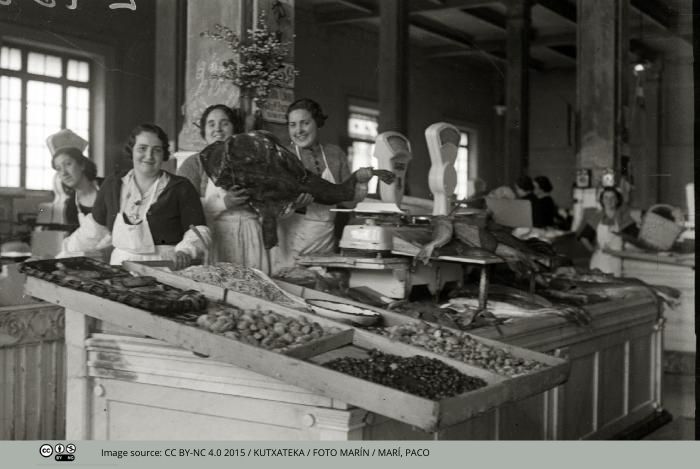


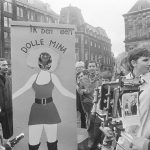
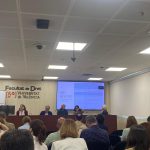
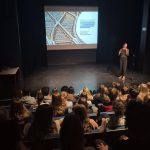
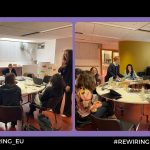
Leave a Reply